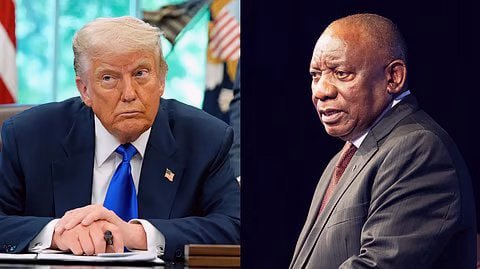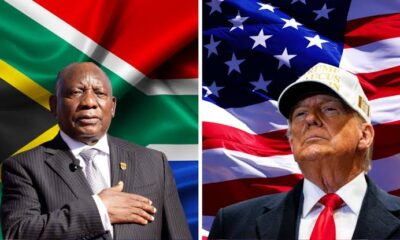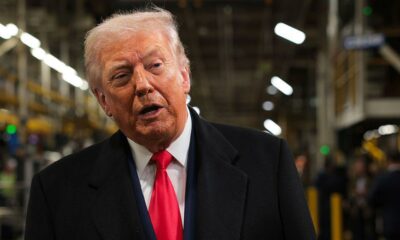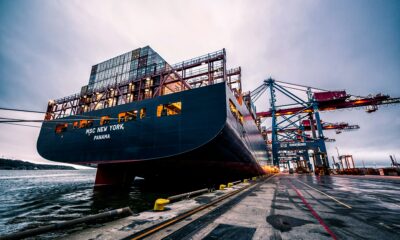News
Ramaphosa Fights Back as Trump’s Tariff Hammer Hangs Over South Africa

With the clock ticking toward a steep U.S. import tariff, Pretoria is scrambling to preserve its trade lifeline
With just days to go before U.S. President Donald Trump’s 31% import tariff on South African goods kicks in, President Cyril Ramaphosa has issued a fresh plea for negotiations to continue and for the punitive duties to be slashed to a more manageable 10%.
The tariff, announced earlier this year under Trump’s “reciprocal trade” doctrine, is part of a sweeping recalibration of U.S. trade relations with African countries. While Kenya, Ghana, and Ethiopia were hit with 10% duties, South Africa faces among the steepest at 31%, with Lesotho slapped with a staggering 50% rate.
These proposed levies, paused for a 90-day grace period back in April, are set to take effect on July 9, 2025, unless Pretoria and Washington can strike a deal.
“We Need More Time”, Pretoria’s Appeal
South Africa’s Department of Trade, Industry and Competition confirmed that it has formally requested an extension of the negotiation window. According to the department, U.S. officials recently informed South African negotiators that Washington is drafting a standardized trade template for African nations, one that all new trade deals are expected to follow.
In response, Ramaphosa’s government is asking for more time to align with this evolving U.S. framework, while also lobbying for a lower tariff cap of 10% in a worst-case scenario.
“South African exporters and manufacturers stand to suffer severe losses,” a government statement warned. “We have longstanding economic ties with the U.S., and this situation threatens that foundation.”
Trump’s Hardline Trade Pivot
For the Trump administration, however, the issue is one of “economic fairness.” Officials argue that African nations have enjoyed preferential access to U.S. markets for decades under agreements like the African Growth and Opportunity Act (AGOA), often without offering similar advantages in return.
Trump’s team believes these tariffs are necessary to correct trade imbalances and shield American industries from foreign competition.
The administration has remained firm on its stance: if African countries want access to U.S. markets, they need to reciprocate and comply with new trade conditions.
Economic Risks for South Africa
If imposed, the 31% tariff could be devastating for key South African sectors, especially automotive, agriculture, and wine, all of which have significant export volumes to the U.S.
According to local economists, the tariffs could result in billions in lost trade, weakened investor confidence, and job losses in export-driven industries.
Trade analysts warn that the ripple effects could reach deep into the region, impacting supply chains and trade corridors in the Southern African Customs Union (SACU), which includes Botswana, Eswatini, Lesotho, and Namibia.
Broader African Alarm Bells
Pretoria isn’t the only one on edge. Across the continent, policymakers are watching the U.S.-South Africa standoff closely. Many fear this may mark the beginning of a new era in which the U.S. retreats from AGOA-style preferential trade deals and replaces them with tougher, one-size-fits-all agreements.
“This is a stress test of U.S.-Africa relations in a post-AGOA world,” said a senior African Union official who asked not to be named. “If Washington proceeds with this tariff wave, it could unravel two decades of trade cooperation.”
Is There Still Room for Diplomacy?
Despite rising tensions, Pretoria believes diplomacy can still win the day. The meeting in Luanda between South African officials and U.S. Assistant Trade Representative for Africa, Connie Hamilton, was reportedly cordial, but inconclusive.
Ramaphosa’s latest intervention signals that Pretoria sees value in continuing negotiations, rather than retaliating with its own trade measures , for now.
But with just a week left on the clock, South Africa is running out of time. If no agreement is reached before July 9, the tariffs will come into effect and the relationship between the continent’s most industrialized economy and its largest export partner may face its biggest test in years.
Will Trump listen? Or will this mark the start of a deeper trade rift between Washington and Africa?
We’ll know soon enough.
{Source: Business Insider Africa}
Follow Joburg ETC on Facebook, Twitter , TikTok and Instagram
For more News in Johannesburg, visit joburgetc.com



























